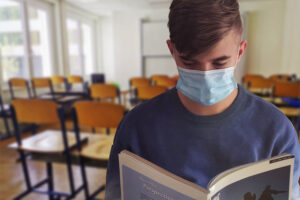
China authorized “with conditions” to commercialize a second coronavirus vaccine
PEKIN (AFP) .- Las Chinese regulatory authorities gave their authorization “with conditions” for market a second vaccine against coronavirus,the CoronaVac from Sinovac laboratory, as announced this Saturday by the pharmaceutical firm.
Approval occurs after numerous trials within China and in countries such as Brazil and Turkey. However, Sinovac clarified in a statement that “The results, in terms of efficacy and safety, still need to be fully confirmed.”
The vaccine has already been applied to the sectors of the population most exposed to the coronavirus, but the authorization on Saturday will allow reach the whole world. Sinovac’s drug go-ahead comes after another Chinese lab, Sinopharm, received emergency validation to distribute its vaccine in December.
According to Sinovac, trials in Brazil show that the vaccine is around 50% effective in preventing infections and 80% in cases requiring hospitalization. The results also show that “the vaccine is safe and has an immunizing effect in people of any age,” according to the statement.
For its part, Sinopharm stated in December that its vaccine had an efficacy rate of 79.34%, lower than that of the drugs developed by the Pfizer / BioNTech and Moderna laboratories, which present positive results of 95 and 94%, respectively.
China aims to reach 50 million vaccinated in the country by mid-February, before the start of the lunar New Year, an important date that represents an increase in the risk of contagion, since it is a vacation and citizens travel to reunite with their families.
The authorities have asked people to stay at home on these dates and to do so they have increased restrictions on movement.
In addition, China, where the coronavirus broke out in December 2019, wants to supply its anticovid drugs to other countries, a kind of “vaccine diplomacy”, which has caused some international suspicion.
The Foreign Ministry declared this week that it planned to supply 10 million doses of vaccines to the international Covax mechanism, launched by the World Health Organization (WHO) to guarantee vaccines to countries with fewer resources.
Beijing authorities have also pledged to share their vaccine at a fair price, good news for many Asian countries, which will depend if not on free delivery of doses via the Covax program.
Countries like Senegal, Hungary or Indonesia have bought millions of doses of vaccines from China. But adoption of the Chinese vaccine abroad is slower than Pfizer / BioNTech and Moderna vaccines, due to a lack of information.
In addition, the reputation of Chinese laboratories has also been clouded by scandals that broke out in the country in the past over expired or poor quality products.
Meanwhile, the Argentine government is in talks with the Chinese administration to obtain one million doses of the Sinopharm vaccine by February, and to achieve a plan that fits into the general vaccination strategy.
According to the criteria of
More information
FURTHER











